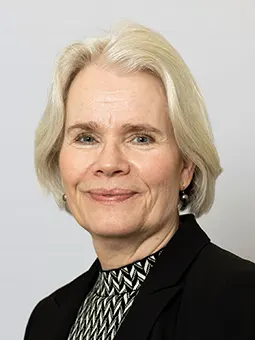
Semester start
The beginning of the semester is the most beautiful event of the autumn, as our new students arrive on campus.
This year, over 1,800 new undergraduate students received a welcome message from the faculty. Our Faculty Buddy Coordinators, together with the Departments’ Buddy Coordinators, planned both events and training for our buddies, who reached a record number of 340 this year. We’re proud to have students with such strong engagement!
Of course, the students don’t do this alone – they collaborate with dedicated and skilled staff. Each department organises its semester start, featuring both academic and social programs for new students, including tournaments, game nights, traditional ceremonies, and dinners where staff and students come together.
Over the past few years, the faculty has established RealStart as a joint semester start event. Students attend lightning talks by our excellent lecturers from various disciplines, and this year, they also got to try soldering and 3D printing with the faculty’s student workshop, IgNite. The event at Vilhelm Bjerknes’ House was packed with enthusiastic students!
Everyone involved works toward a semester start with minimal focus on alcohol consumption. We succeed in this through inclusive events and our fantastic mentors. An inclusive start for all is important!
A heartfelt thank you to all staff and buddies who contributed to welcoming our new students with such dedication and enthusiasm!
Arendalsuka
Arendalsuka is an important arena for us to be present and participate in strategic and political discussions related to the research sector and our academic fields.
In my opinion, this year’s Arendalsuka was especially successful!
Research in science, technology, and health was frequently on the agenda, and I see a growing understanding and recognition of the importance of basic research for the development of Norwegian industry and society. Our graduates are central to future success.
The need for collaboration is increasingly emphasised – across disciplines, between research institutions, between the research sector and industry, and between the civil and defence sectors. The Faculty has long worked actively to expand our external partnerships, and this will continue to be crucial going forward.
This year, we placed particular emphasis on Quantum Science and Technology, and Artificial Intelligence (AI) in our events. Together with strong partners from universities, research institutes, and industry, we discussed research and enabling technologies and hosted debates with participants from politics and the Research Council.
Launch of the Norwegian Quantum Cluster
The faculty has established the Norwegian Quantum Cluster in collaboration with SINTEF Digital and the Faculties of Information Technology and Electronics (IE) and Natural Sciences (NV) at NTNU, to strengthen Norwegian research, development, and education in quantum science and technology and related fields. We welcome more participants from research, industry, and the public sector.
Sintef, the University of Oslo, and NTNU launch a Norwegian quantum cluster.
Quantum science and technology: a Norwegian initiative in the global race?
Together with SINTEF Digital, Oslo Science City, Kongsberg, NHO, and NTNU, we gathered key politicians, the Research Council, the Norwegian Defence Research Establishment, UiO’s Pro-Rector, and our partners at the Niels Bohr Institute to discuss priorities for a Norwegian quantum strategy. The debate featured Minister of Education Sigrun Aasland, MPs from H?yre and Venstre, and Research Council Director Mari Sundli Tveit.
Can deep tech become a goldmine for Norway?
The Faculty co-hosted SINTEF Digital’s event on deep tech. I participated in the discussion, which you can hear in the latest episode of the podcast Smart Forklart.
How can Norway use more AI?
Our SFF Integreat – Norwegian Centre for Knowledge-driven Machine Learning – invited discussions in collaboration with Oslo Science City on challenges and solutions for faster and broader adoption of AI across sectors. Researchers, politicians, and leaders from major public organisations were well represented.
AI and democracy
dScience – Centre for Computational and Data Science – discussed how AI affects democratic processes and what measures can be taken to protect them. Minister of Education Sigrun Aasland participated alongside researchers and leaders from SimulaMet. The event was in collaboration with NORA – Norwegian Artificial Intelligence Research Consortium – which hosted its own AI tent at Arendalsuka.
Artificial intelligence and Norwegian health data: What are the opportunities?
The auditorium was full, and over 400 joined the stream when the Department of Informatics (IFI) gathered key stakeholders from the Cancer Society, Oslo Cancer Cluster, NORCE, and others for a rich hour of discussion. Minister of Digitalisation Karianne Tung joined the debate on value creation through health data.
Health industry – how to accelerate with speed and power?
The Growth House for Value Creation discussed the health industry and what is needed from academia, innovation ecosystem actors, the Research Council, and political leadership to increase innovation and value creation from research. The event featured contributions from politicians, a startup, the Research Council, the National Export Council, the Research Park, and the HealthOmsorg21 Council.
Links to the events can be found on UiO’s Arendalsuka webpage.
Thank you to everyone who contributed to these fantastic events and represented the faculty at Arendalsuka!
Wishing all staff and students at the faculty a great autumn semester!
Warm regards,
Solveig Kristensen, Dean